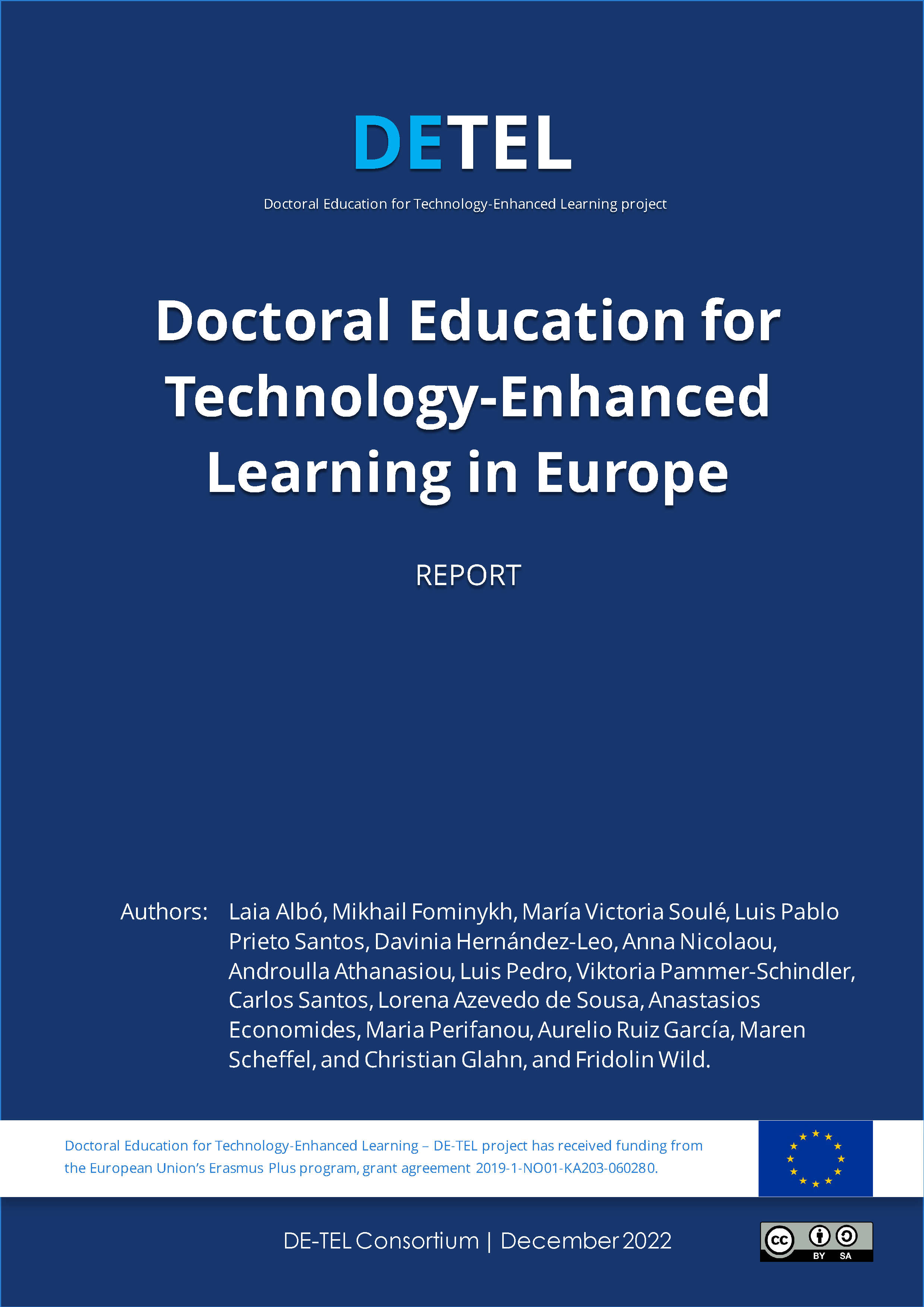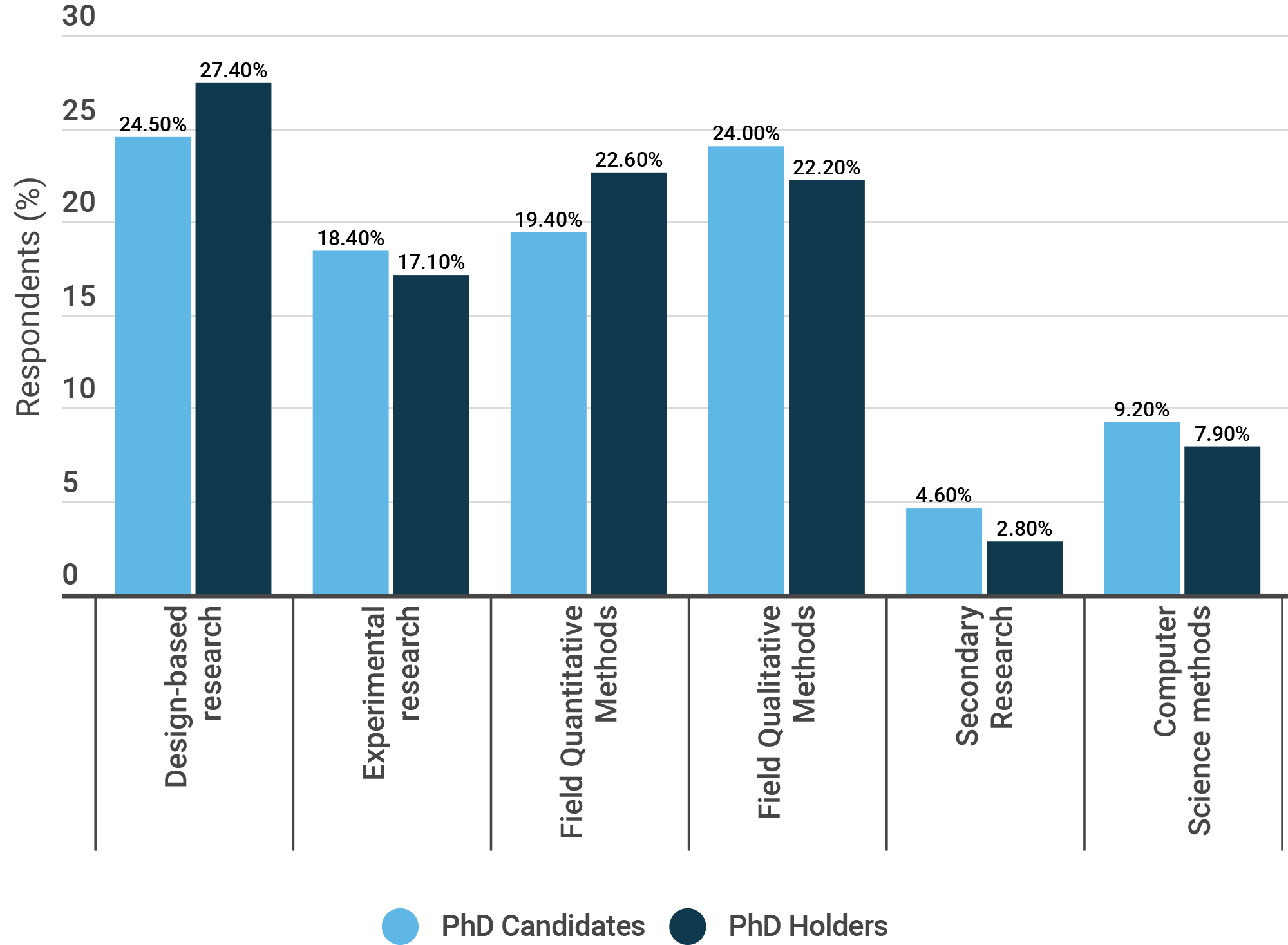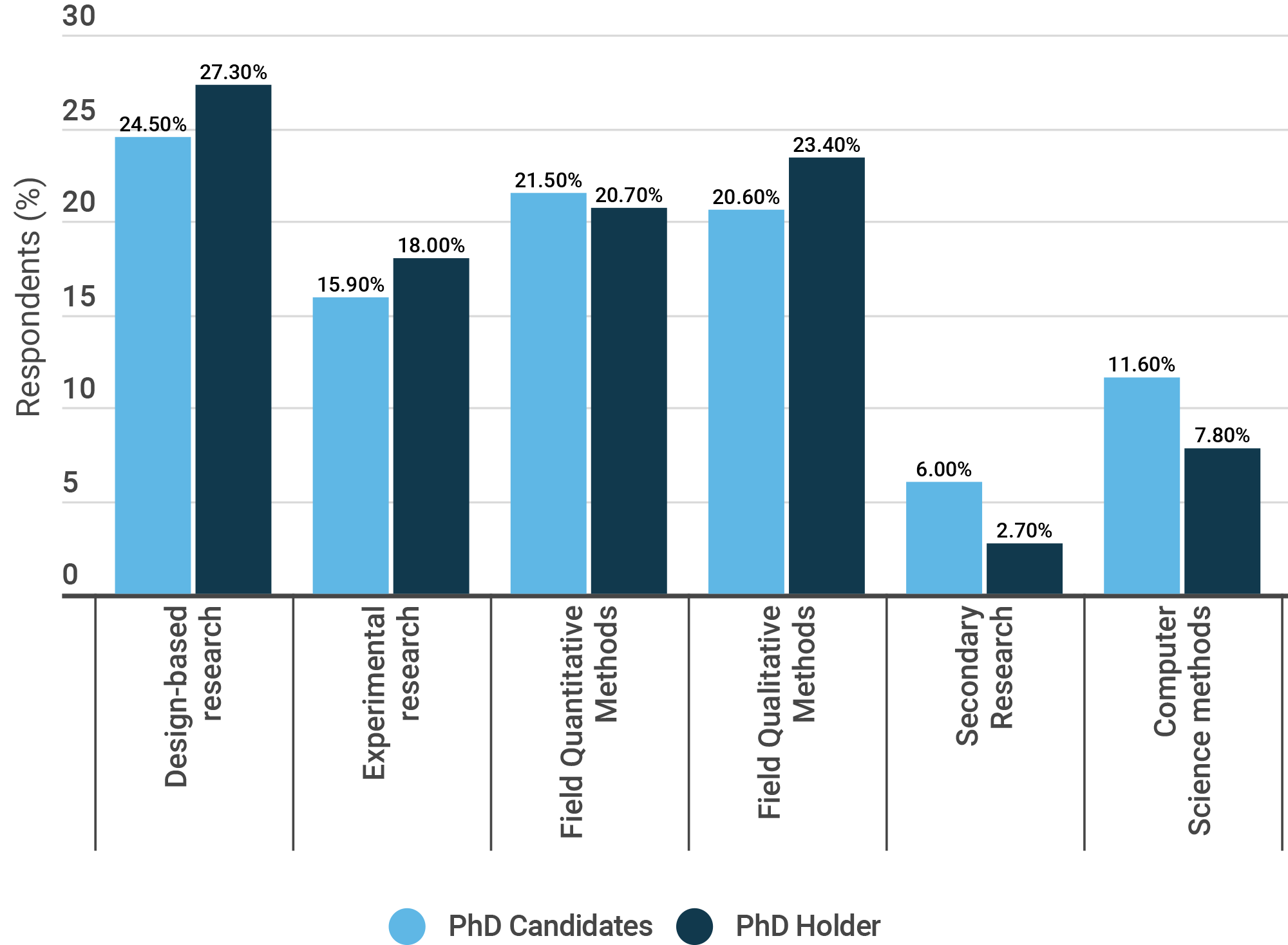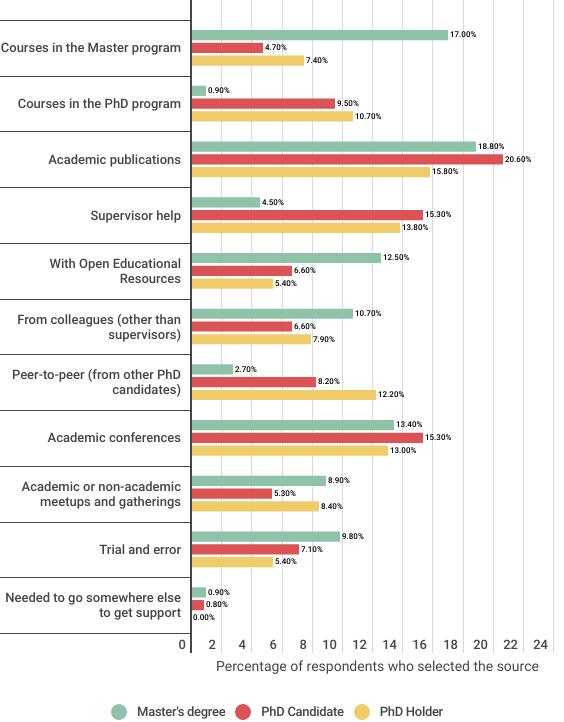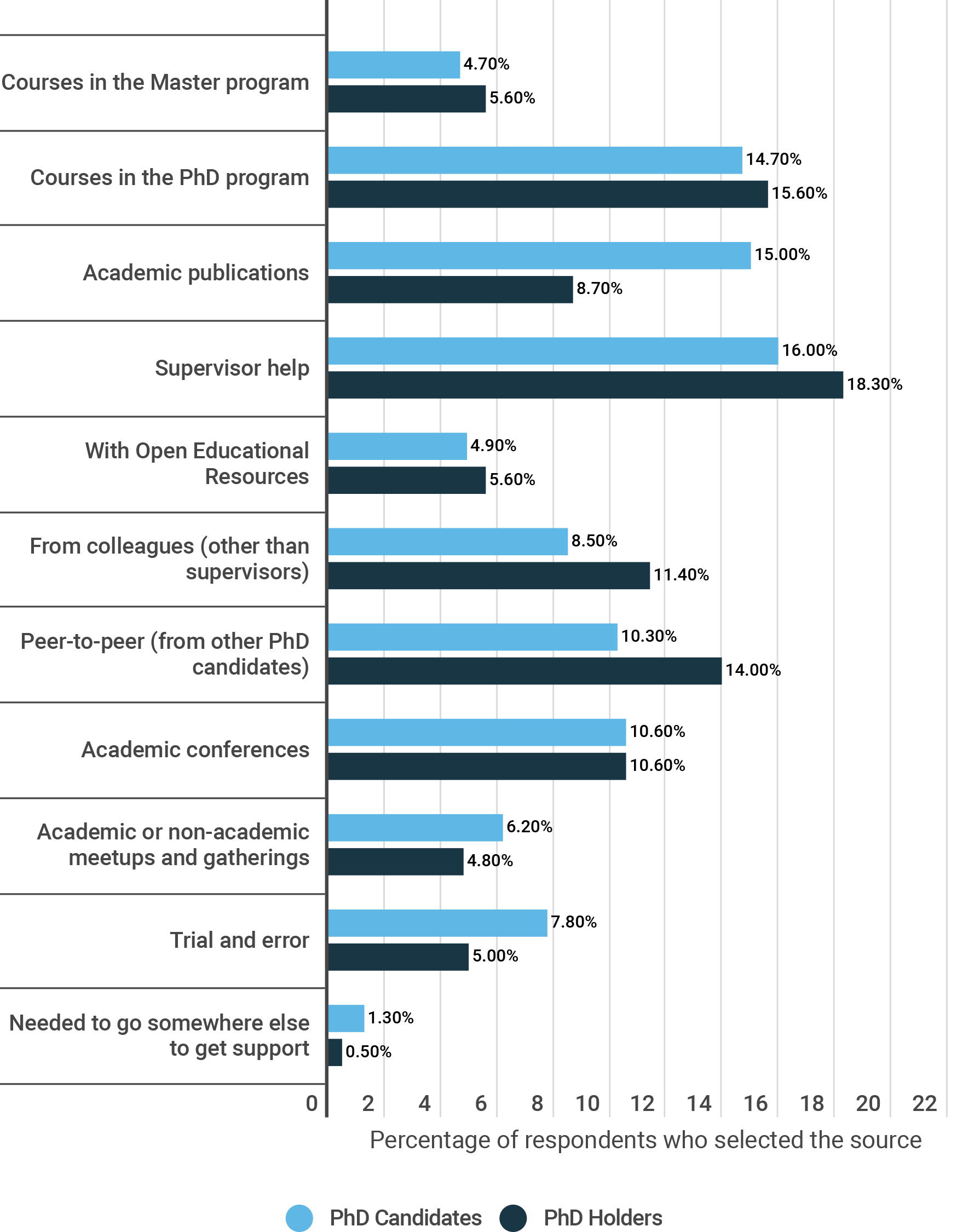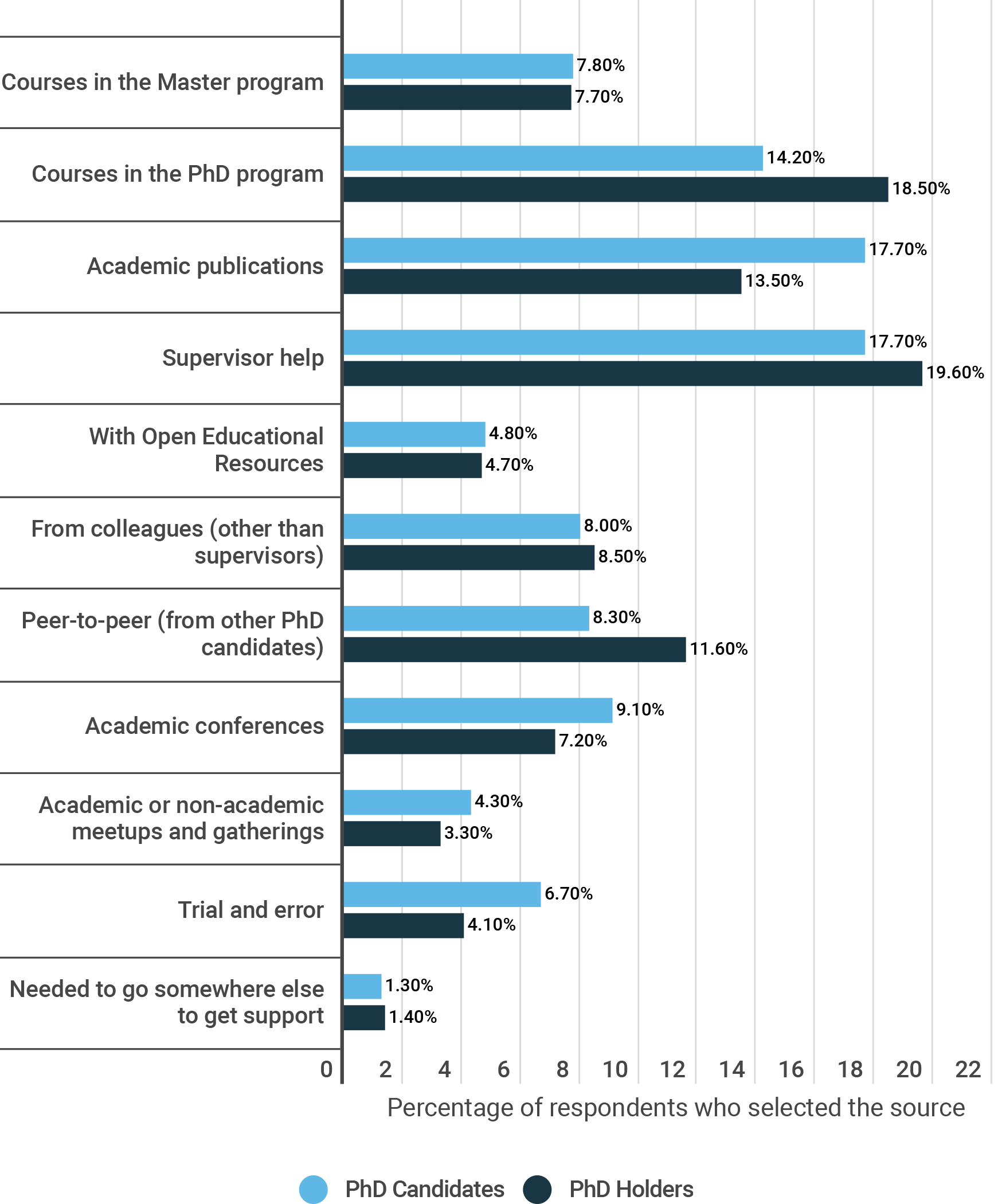The survey results are described in detail in the Doctoral Education for Technology-Enhanced Learning in Europe report. The report is published by the DETEL consortium with a CC-BY-SA-4.0 license.
Cite as:
Laia Albó, Mikhail Fominykh, María Victoria Soulé, Luis P. Prieto, Davinia Hernández-Leo, Anna Nicolaou, Androulla Athanasiou, Luis Pedro, Viktoria Pammer-Schindler, Carlos Santos, Lorena Azevedo de Sousa, Anastasios Economides, Maria Perifanou, Aurelio Ruiz García, Maren Scheffel, Christian Glahn, and Fridolin Wild (2022) Doctoral Education for Technology-Enhanced Learning in Europe: report. DETEL Consortium. DOI: 10.13140/RG.2.2.32762.98243. URL: https://ea-tel.eu/de-tel/detel-report.
Survey Methods and structure
The survey was implemented as an online questionnaire using Lime Survey and aimed to collect responses to primary information on doctoral education in TEL from PhD candidates in TEL and researchers involved in doctoral education in TEL or doing research in TEL. Survey had 31 (close and open) questions and was composed of seven sections.
| Section | Theme | Subsections (number of questions) |
| 1 | Professional background |
|
| 2 | Thematic content |
|
| 3 | General PhD Training Topics |
|
| 4 | Research methods |
|
| 5 | Learning sources |
|
| 6 | Challenges |
|
| 7 | Supervision and mentoring |
|
| * | Personal background |
|
Survey Participants
In total, 229 participants responded to the survey, 51.5% female and 45% male (1.7% preferred not to specify gender). The majority of participants (40.2%) were between 30-39 years old, 27.1% between 40-49 yo, 18.8% were 50 or above and 12.2% were in their twenties (1.7% preferred not to report age). The respondents were from 40 different countries. Spain, Germany and Portugal are the three countries with more participants (34% all three) followed by Greece, Norway and Estonia (17% all three). The survey was mainly distributed by the partners of the DE-TEL project. As a result, we see that partner countries are more represented although dissemination efforts were focused globally.
Participants’ professional background, indicates that 45% (n=103) of respondents were PhD candidates, 40.2% (n=92) were holding a PhD and 11.4% (n=26) were currently holding a Master’s degree or equivalent, and this is their highest degree. Only 3.5% (n=8) of participants held a degree that is lower than a Master’s or equivalent. PhD candidates responding to the survey were in different stages of their doctoral studies: 52.4% (n=54) were in their late stage – less than one year before their PhD thesis submission and defense; 26.2% (n=27) were in their middle stage; and 21.4% (n=22) in their early stage – first year students.
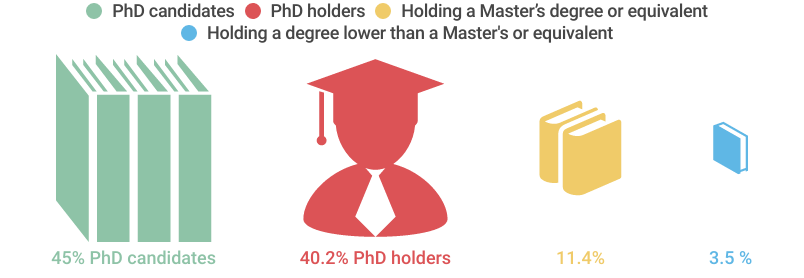
PhD candidates and holders were asked to choose the option that best describes their PhD project. Education using technologies (e.g., applying technology for learning in practice) was the most selected topic (selected by 41.7% of Phd candidates and 34.8% of PhD holders). The second and third topics selected by PhD candidates were Computing / IT applied to learning (e.g., designing new apps or digital content for learning) with a 21.4% and Approximately equal efforts in development of educational technologies and applying them for learning with a 16.5%. These two topics were selected by PhD holders in the second position with the same percentage each (20.7%).
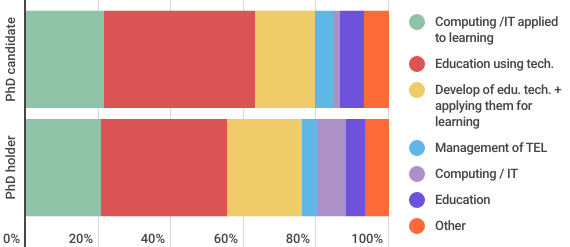
TEL topics
Response to the question “For which topics do you need a course or educational materials?”. Frequency of selected topics breakdown by educational background.

Response to the question “Indicate how important courses and educational materials on these topics are for you” (PhD candidates, Master holders and Lower Master); and “Indicate how important courses and educational materials on these topics are for a PhD candidate in TEL.” (PhD holders). Sum of rates obtained per topic breakdown by educational background.
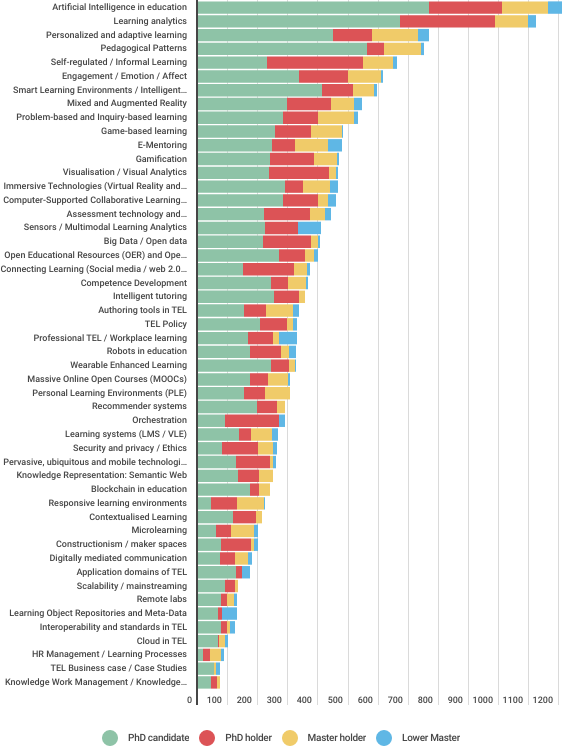
General PhD training topics
For the general PhD training topics, we conclude that PhD candidates believe that they need training on and educational materials on the general PhD training topics:
- Academic writing and publication
- Dissemination of research results
- Project management
PhD holders believe that PhD candidates need training on and educational materials on the general PhD training topics:
- Academic writing and publication
- Project management
- Research ethics
- Dissemination of research results
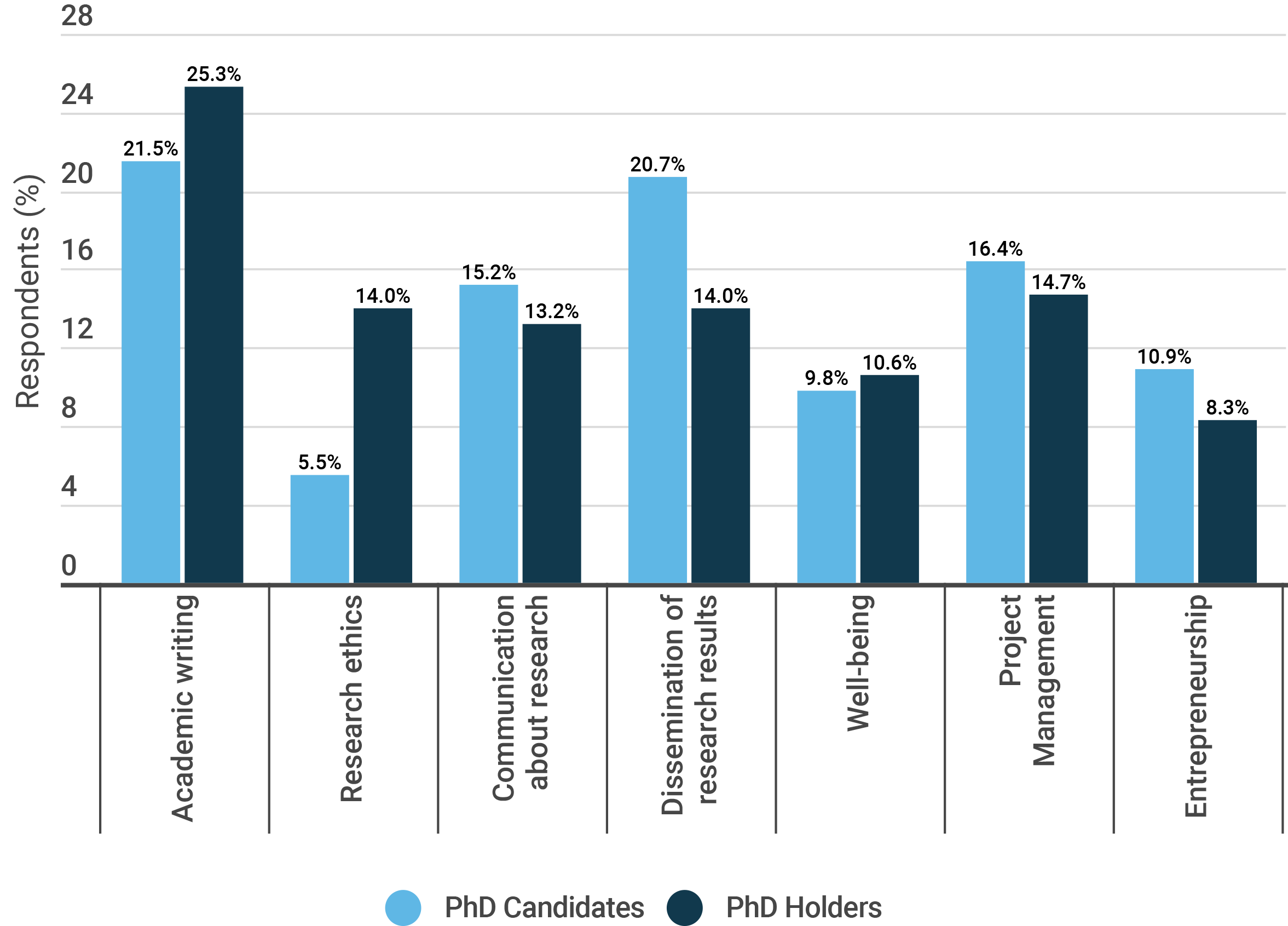
Research methods
For the research methods, we conclude that the most common method for both PhD students and PhD holders is Design-based research. An exception are researchers working in the field of ‘Education using technologies’, where experimental research and field qualitative methods are the most reported methods. Regardless of the level of training, the participants reported the need for more training in the research methods they use.
We also investigated the relationship between PhD topics and research methods used in each one of those topics. The data presented in figure below indicate a visible variation of the research methods that are most used according to the different PhD topics. Design-based research and Computer science methods are the most used methods in ‘Computing/IT applied to learning’ PhDs. They are also the most used methods in the field of ‘Education using technologies’ together with Experimental research and Field qualitative methods. Design-based research is again the most used method in PhDs where there is approximately equal efforts in the development of educational technologies and applying them for learning.
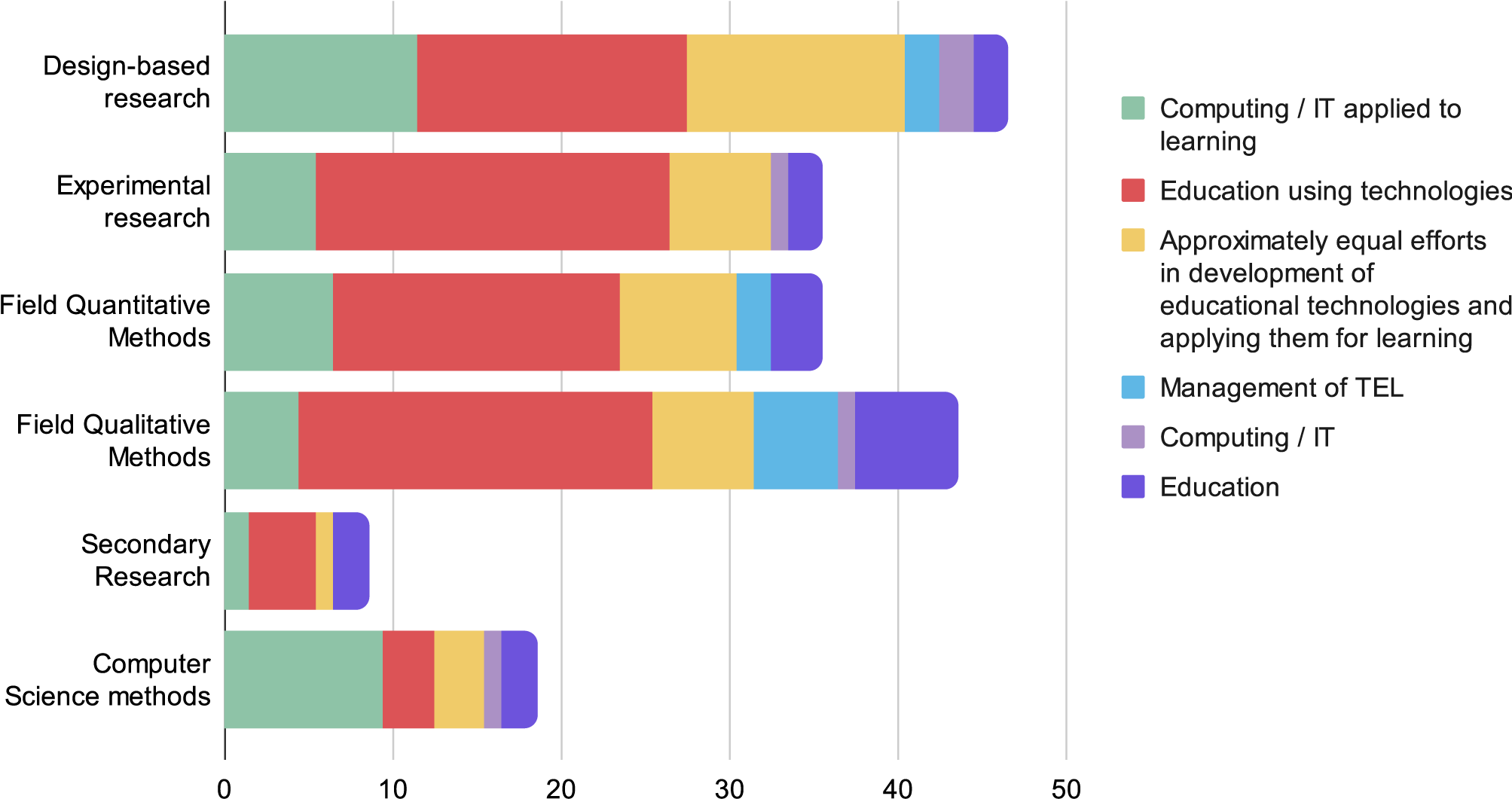
Learning sources
For the learning sources, we conclude that the primary learning source for TEL topics is academic publications. The primary learning source for general PhD training is supervisor help. The primary learning sources for research methods are supervisor help, academic publications, and courses in the PhD program. The variety in the learning sources is influenced by the educational background.
Challenges
For the challenges in doctoral education in TEL, we conclude that the most difficult barriers for TEL PhD candidates are:
- Work-life balance
- Project management
- Psychological challenges
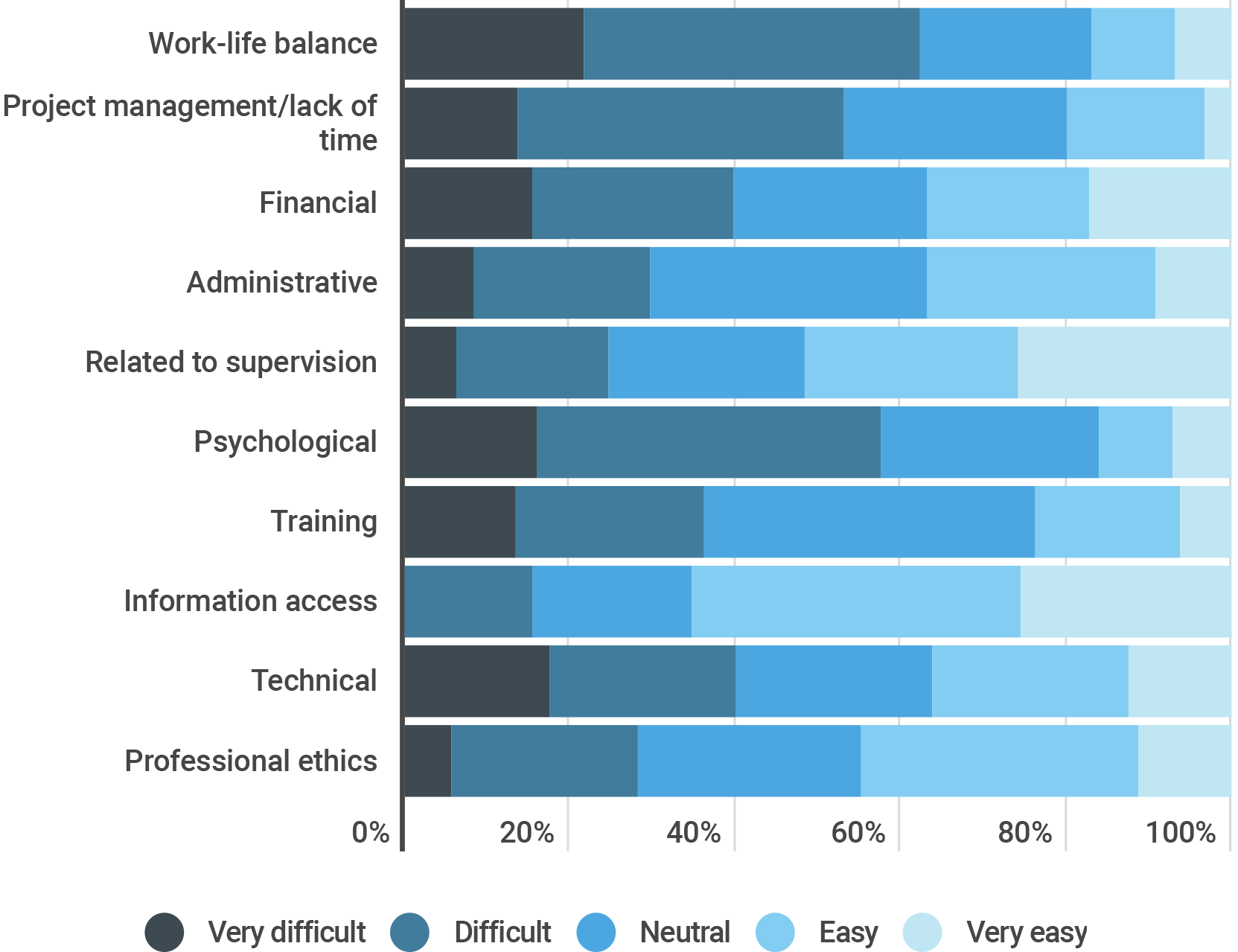
Supervision and Mentoring
Our survey also contained questions related to the doctoral candidates (and PhD holders) satisfaction with their supervision and mentoring. The participants were majoritarily satisfied with the supervision and mentoring received, with current candidates slightly more satisfied on average (mean=3.9) than TEL PhD holders (mean=3.7).
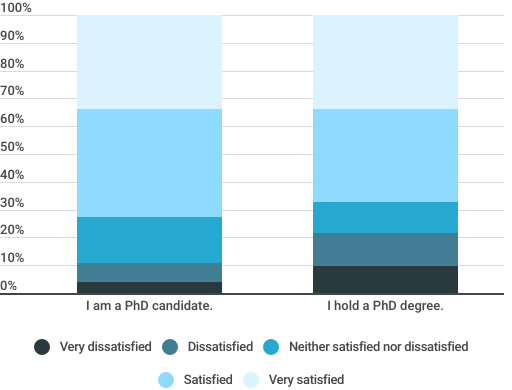
We suggested the participants 19 common doctoral supervision practices, so that they could select those they experience:
- Single-supervisor support
- Co-supervision support
- Team supervision
- Learning how to do research by example
- Learning how to write a grant proposal by example
- Learning how to prepare an ethics application by example
- Learning how to review the literature by example
- Learning how to write and publish scientific texts by example
- Learning how to analyze data by example
- Learning project management by example
- Doctoral writing groups
- Supervision contracts
- Regular discussion of the overall thesis plan with supervisors or other colleagues
- Inclusion of external experts or other researchers into the PhD research
- Support in integrating into your disciplinary scientific community
- Support to your critical thinking skills
- Emotional support
- Support for your autonomy as an independent researcher
- Material support
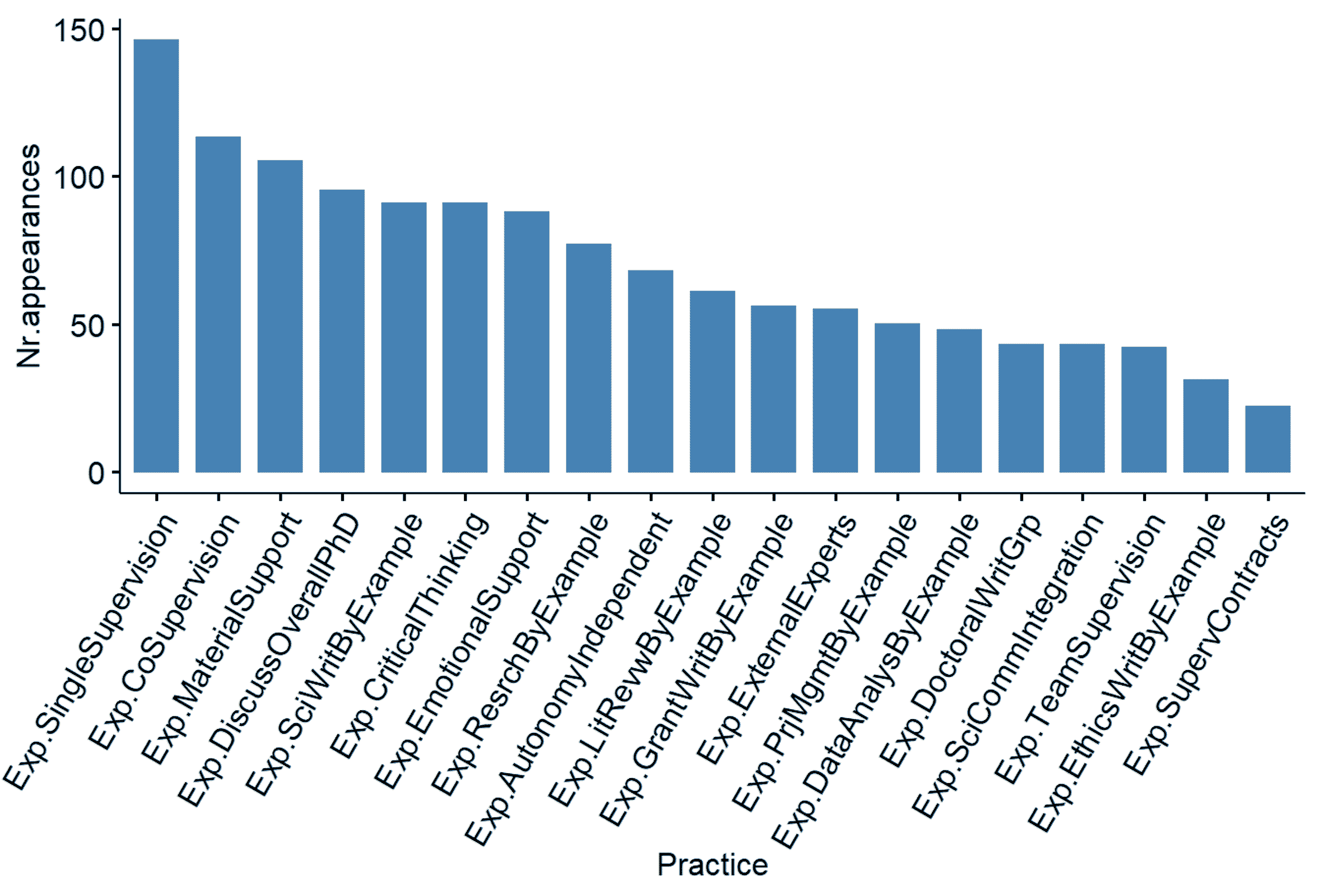
If we plot both the common-ness and usefulness of such practices in a two-dimensional plane, we can obtain a more actionable picture to guide future TEL supervisors (and supervisor trainers) in what kinds of practices to focus on.
About DE-TEL
This survey is designed by the Doctoral Education for Technology-Enhanced Learning (DE-TEL) project, funded by the Erasmus Plus program of the European Union (grant agreement 2019-1-NO01-KA203-060280). The project works on establishing and deepening a strategic partnership for doctoral education in the field of TEL.
